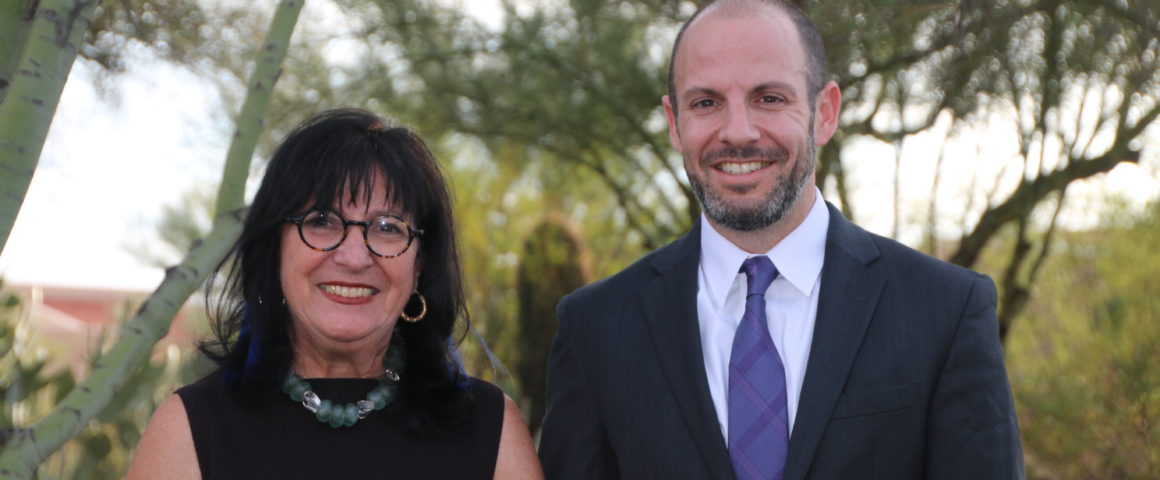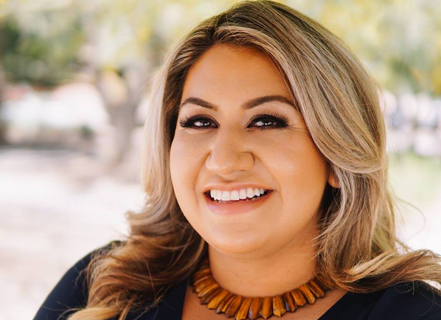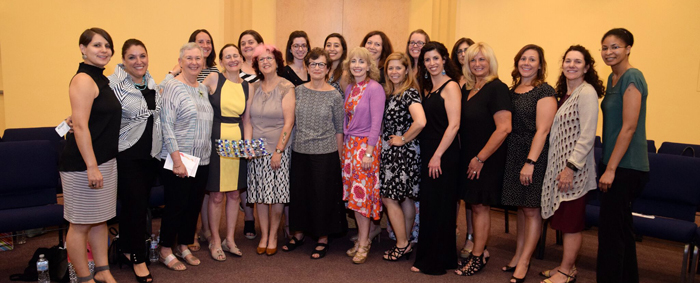Upon entering Gloria and Maurice (Mo) Goldman’s law offices, Goldman & Goldman, in Northwest Tucson, I felt transported into a beehive of activity. Four staff members speaking Spanish maneuvered around desks piled high with folders and documents awaiting immigration cases.
A father sitting on the couch with his 12-year-old son told me that he recently found the boy huddled in the corner of his bedroom in the middle of the night, “crying out for his mom.” She had been deported to Mexico, while her native Tucsonan husband and American-born children remain here.
The mother and son attorneys understand the significance of keeping families together. “We’re fortunate enough to live and work near family,” says Mo, adding that he empathizes with immigrant family members who have been split up.
The Illegal Immigration Reform and Immigrant Responsibility Act of 1996, signed by President Bill Clinton, “was very harsh,” notes Gloria. It barred immigrants from returning to the United States for 10 years after being deported, which became easier to exercise under this law. Many current immigration cases are difficult to win based on this legislation, she says.
As a law student at Maurice A. Deane School of Law at Hofstra University on Hempstead, Long Island, N.Y., Mo returned to Tucson in the summer of 1996, after Congress passed the 1996 law. “I helped out my mom. It was an eye-opening experience,” says Mo.
Previously, an undocumented immigrant only had to show hardship to oneself when U.S. Immigration and Customs Enforcement threatened deportation. “We’d win those cases,” says Gloria. “There’s a much higher standard” now that you have to prove hardship to a severely disabled spouse or child. And it no longer matters if a spouse is married to an American citizen.
At the time Mo opened his immigration law practice on Long Island, in December 2000, President Clinton signed a bill that extended section 245(i) of the Immigration and Nationality Act. This extension lasted for a brief period of five months, and many individuals that were seeking an alternative path to a green card filed applications during that time.
“I got a crash course in immigration law,” says Mo. “I got many calls from people who wanted green cards for their nannies or housekeepers. It was trial by fire.”
While practicing in New York for five years, he also did research for his mother back in Tucson.
“I enjoyed working in New York, but everything is a big production there. The lifestyle isn’t as laid-back as we have here,” says Mo. In 2005, after Mo and his wife Amy’s first child was born, they decided to move to Tucson.
“It was great for me,” says Gloria, herself an immigrant born in Germany to Holocaust survivors Morris and Esther Klein. The only survivors of their family, her parents, immigrated with their six-month-old baby to Detroit, where Gloria grew up.
Her first career was as a teacher to the deaf in Detroit until she moved to Tucson in 1974.
With her husband, Michael, an orthodontist, she raised Mo and daughter, Larissa. In 1988, devoting herself to a different venture, Gloria enrolled at the [then] University of Arizona School of Law.
Setting up her Tucson law office in 1991, Gloria has come a long way – from immigrant to immigration lawyer. These days, says Gloria, “it’s a frustrating time,” when “bad hombres” are more aggressively pursued by ICE for deportation. “Most people who come from Mexico are not ‘bad hombres,’” she asserts, adding, “That’s a fallacy,” as is the erroneous view that the immigration lottery doesn’t require extensive vetting.
“How difficult it is to see an average person navigate the immigration system today,” laments Mo.
During our interview his dad happens into the office, telling me, “Every day something emotional happens that rocks their cases.”
Mother and son work their cases independently but run questions by each other. Both are active members of the American Immigration Lawyers Association, working as part of a “team” to stand up for immigration rights.
In May, Larissa will graduate from the Sandra Day O’Connor College of Law at Arizona State University and will practice in Phoenix, joining her mother and brother in their quest for a more humane immigration policy.
As Jews “we learned that we’re a compassionate people,” says Gloria.
“I’d like to see more compassion from our government, including our representatives, our leaders,” she adds. “You want to jump into the TV set and tell these leaders to stop lying.”
Sheila Wilensky is a writer, editor and educator living in Tucson.






